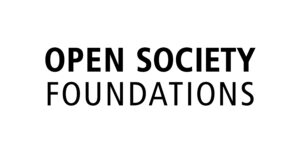
Live Stream—Why the EU Needs an Anticorruption Sanctions Regime: A Powerful Tool in the Fight Against Corruption
Welcome to the live stream of Why the EU Needs an Anticorruption Sanctions Regime: A Powerful Tool in the Fight Against Corruption.
The broadcast will begin at 12:00 CET sharp.
Today’s event is brought to you by the Open Society Foundations within the framework of Magnitsky month.
Back in March, we published Why the European Union Needs Anticorruption Sanctions, a report on how EU anti-corruption sanctions could be a powerful tool against kleptocratic and illicit money flows that threaten the stability and security of democracy, rule of law, and human rights worldwide.
Multilateral Magnitsky Sanctions at Five Years, a new report published this week by Human Rights First, REDRESS, the Raoul Wallenberg Centre for Human Rights, and the Open Society Foundations, provides an in-depth, comparative analysis of how the U.S., Canada, the UK, and the EU use their Magnitsky-style sanctions programs. It identifies key trends and omissions among the different programs, drawing on a months-long analysis of these jurisdictions’ public statements announcing each use of their Magnitsky-style authorities.
The event will be moderated by Jennifer Baker, presenter and reporter.
Speakers:
Carl Dolan is the interim director of Policy and Outreach with Open Society—Europe and Central Asia (opening remarks).
Anton Moiseienko is a lecturer at the ANU College of Law.
Stephanie Muchai is program director for Governance and Anticorruption with the International Lawyers Project.
Tinatin Tsertsvadze is a senior policy analyst with the Open Society—Europe and Central Asia.
Sandra De Waele is head of division for Sanctions for the European External Action Service.